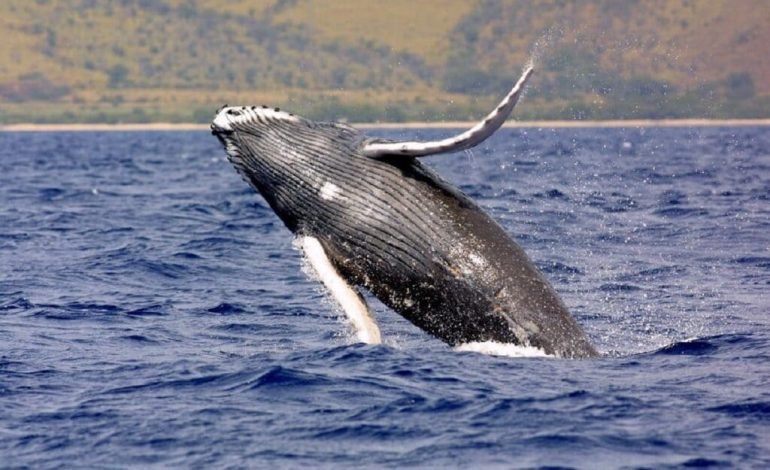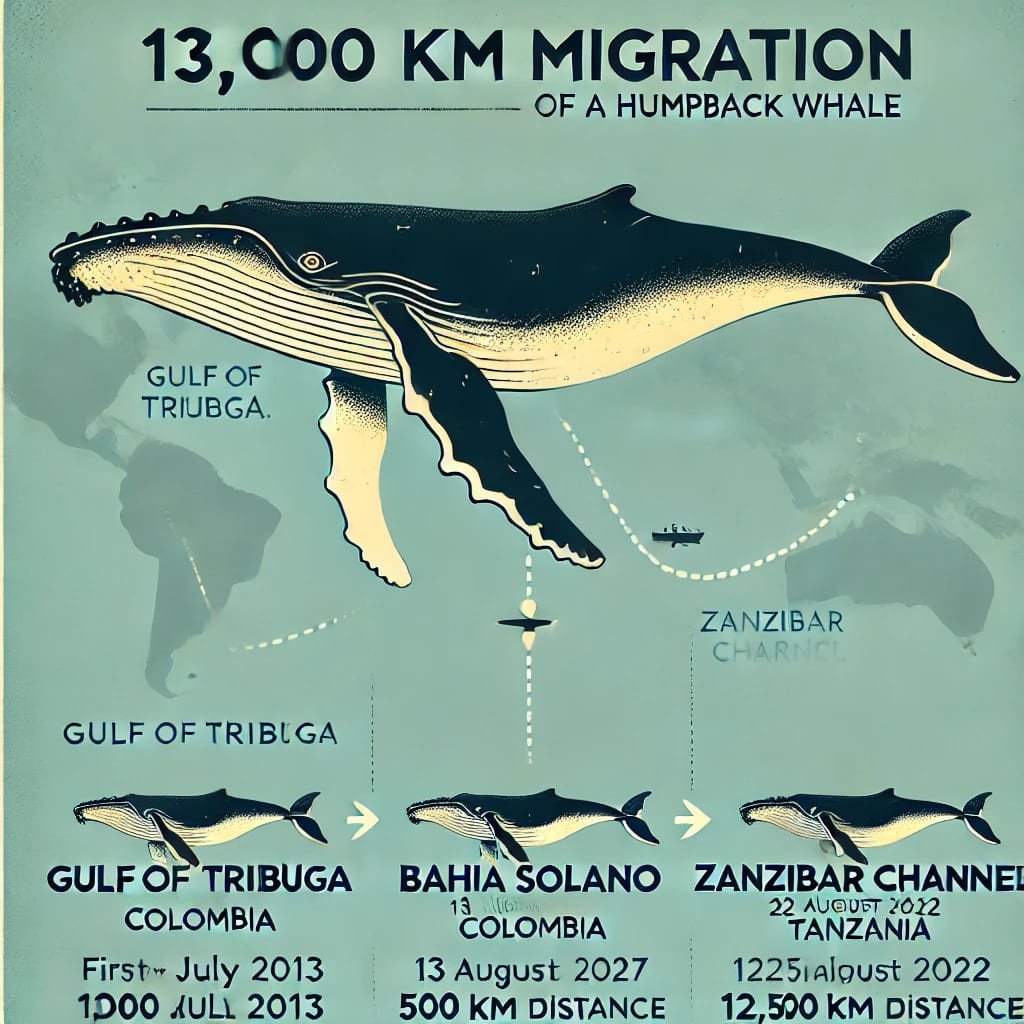Incredible 13,000km Humpback Whale Migration Shocks Scientists

A humpback whale has achieved one of the longest recorded migrations, travelling at least 13,000 km from the Pacific Ocean off Colombia to the Indian Ocean near Zanzibar. This remarkable feat, tracked over several years, has sparked discussions among scientists about how climate change and global conservation efforts might be influencing these extraordinary journeys.
The wandering male whale, first photographed in 2013 along Colombia’s Pacific coast, was spotted in a similar area in 2017 before being identified again near Zanzibar in 2022. Covering a minimum great-circle distance of 13,046 km, the whale’s epic trek is likely even longer when factoring in its actual route. Dr Ekaterina Kalashnikova from the Tanzania Cetaceans Program called the migration “truly impressive and unusual even for this highly migratory species.”
Explore Science and Environment Stories
Earth-Like Environment Likely on Ancient Mars
Humpback whales are known for their long-distance journeys, typically travelling between tropical breeding grounds and cooler feeding areas. However, this particular male ventured between two breeding grounds—an unprecedented behaviour. One theory is that climate change is depleting the tiny shrimplike krill they feed on, forcing whales to explore new territories for food. Alternatively, as global conservation efforts have boosted whale populations, whales may be expanding their breeding grounds.

“While the actual reasons remain unknown, possible drivers could include global climate changes, more frequent extreme environmental events, and the evolutionary mechanisms of the species,” Dr Kalashnikova explained.
The study that uncovered this record-breaking journey relies on an extensive database of whale photographs submitted by researchers, whale watchers, and the public to the citizen science platform Happywhale.com. Using artificial intelligence, the platform matches unique shapes and patterns on humpback whale tails—known as flukes—to track their movements globally.
This research, published in the Royal Society Open Science journal, highlights the incredible resilience of humpback whales and underscores how changes in their environment might be impacting their behaviour. As scientists continue to study these majestic creatures, the findings shed light on both the challenges posed by climate change and the success of international conservation efforts.
Here in the UK, whale-watching in Scottish waters has grown in popularity, offering insight into the global connectivity of marine life and the potential impact of human behaviour on these ecosystems. The wandering whale’s journey also provides a reminder of the critical need for continued conservation efforts to protect marine habitats.
For more updates on groundbreaking wildlife discoveries and environmental issues, visit EyeOnLondon.
Follow us on:
Subscribe to our YouTube channel for the latest videos and updates!
We value your thoughts! Share your feedback and help us make EyeOnLondon even better!









